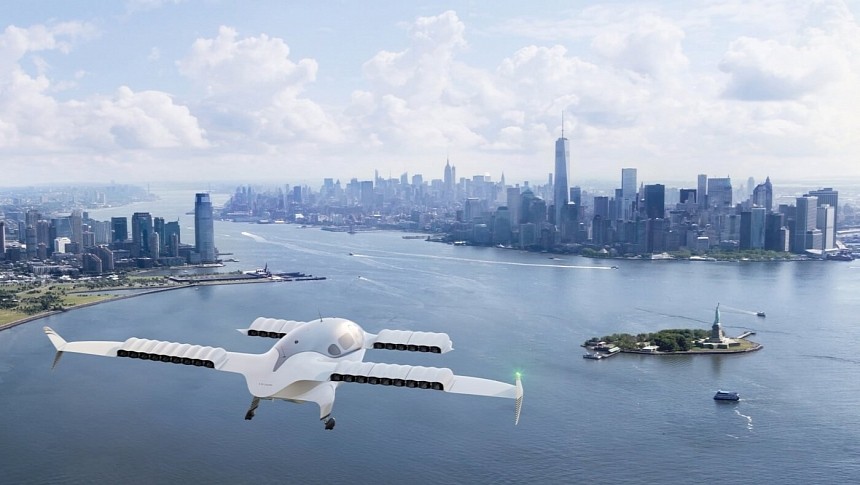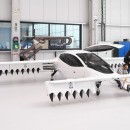Out of all the eVTOL (electric vertical take-off and landing) concepts gearing up to launch commercial services by 2025, Lilium claims to be the only jet. The German air mobility startup is also one of the few aiming for certification in both Europe and the US. The latest certification milestone proves it's on the right track.
Founded in Germany in 2015, Lilium had to focus on getting the green light from EASA (the European Union Aviation Safety Agency) first as its primary airworthiness authority. It hit the first milestone in 2020 when EASA issued the certification basis for the Lilium VTOL jet.
Three years later, Lilium is proud to announce it got a certification basis from FAA (the Federal Aviation Administration) as well. Proud because few eVTOL manufacturers are seeking simultaneous certification in the US and Europe. It's difficult enough to obtain type certification in one area. On the other hand, existing legislation (the Bilateral Aviation Safety Agreement between the EU and the US) encourages dual certification.
According to Lilium, FAA will use information and data from both the manufacturer and EASA to analyze the VTOL jet's performance and safety before the next step in the process, which is issuing the G-1 certification basis for public consultation.
When it gets type certification from FAA and EASA, Lilium will basically be able to sell and operate its aircraft legally in Europe and the US. Since the EASA certification process started earlier, the air mobility startup hopes to kick off commercial services in Europe by late 2025.
Lilium's aircraft introduces a proprietary technology called DEVT (Ducted Electric Vectored Thrust) which is said to improve payload, aerodynamic efficiency, and noise profile while making the jet easier to maneuver. Since jet engines are used to power 95% of existing conventional airplanes, the German startup wanted to create something similar but simpler and with the added benefit of zero emissions.
This is how the engineers at Lilium came up with electric jet engines that use a single-stage rotor/stator system driven by an electric motor. The engines are integrated into the wing flaps. The jet also claims improved aerodynamic efficiency thanks to its innovative design, fixed wings, no tail, and an embedded distributed propulsion system.
Thanks to design innovations, the Lilium jet can also operate on existing helipads (doesn't require dedicated infrastructure) with a high payload. It's also remarkably silent due to acoustic liners that capture and dissipate noise before it reaches the environment.
The versatile cabin can be configured as a six-seat passenger air taxi, a cargo aircraft with no seats, or a luxury private jet with fewer seats, high-end materials, and wide customization options. So far, Lilium has tested five generations of the VTOL jet and has secured worldwide customers.
Three years later, Lilium is proud to announce it got a certification basis from FAA (the Federal Aviation Administration) as well. Proud because few eVTOL manufacturers are seeking simultaneous certification in the US and Europe. It's difficult enough to obtain type certification in one area. On the other hand, existing legislation (the Bilateral Aviation Safety Agreement between the EU and the US) encourages dual certification.
According to Lilium, FAA will use information and data from both the manufacturer and EASA to analyze the VTOL jet's performance and safety before the next step in the process, which is issuing the G-1 certification basis for public consultation.
When it gets type certification from FAA and EASA, Lilium will basically be able to sell and operate its aircraft legally in Europe and the US. Since the EASA certification process started earlier, the air mobility startup hopes to kick off commercial services in Europe by late 2025.
Lilium's aircraft introduces a proprietary technology called DEVT (Ducted Electric Vectored Thrust) which is said to improve payload, aerodynamic efficiency, and noise profile while making the jet easier to maneuver. Since jet engines are used to power 95% of existing conventional airplanes, the German startup wanted to create something similar but simpler and with the added benefit of zero emissions.
This is how the engineers at Lilium came up with electric jet engines that use a single-stage rotor/stator system driven by an electric motor. The engines are integrated into the wing flaps. The jet also claims improved aerodynamic efficiency thanks to its innovative design, fixed wings, no tail, and an embedded distributed propulsion system.
Thanks to design innovations, the Lilium jet can also operate on existing helipads (doesn't require dedicated infrastructure) with a high payload. It's also remarkably silent due to acoustic liners that capture and dissipate noise before it reaches the environment.
The versatile cabin can be configured as a six-seat passenger air taxi, a cargo aircraft with no seats, or a luxury private jet with fewer seats, high-end materials, and wide customization options. So far, Lilium has tested five generations of the VTOL jet and has secured worldwide customers.







